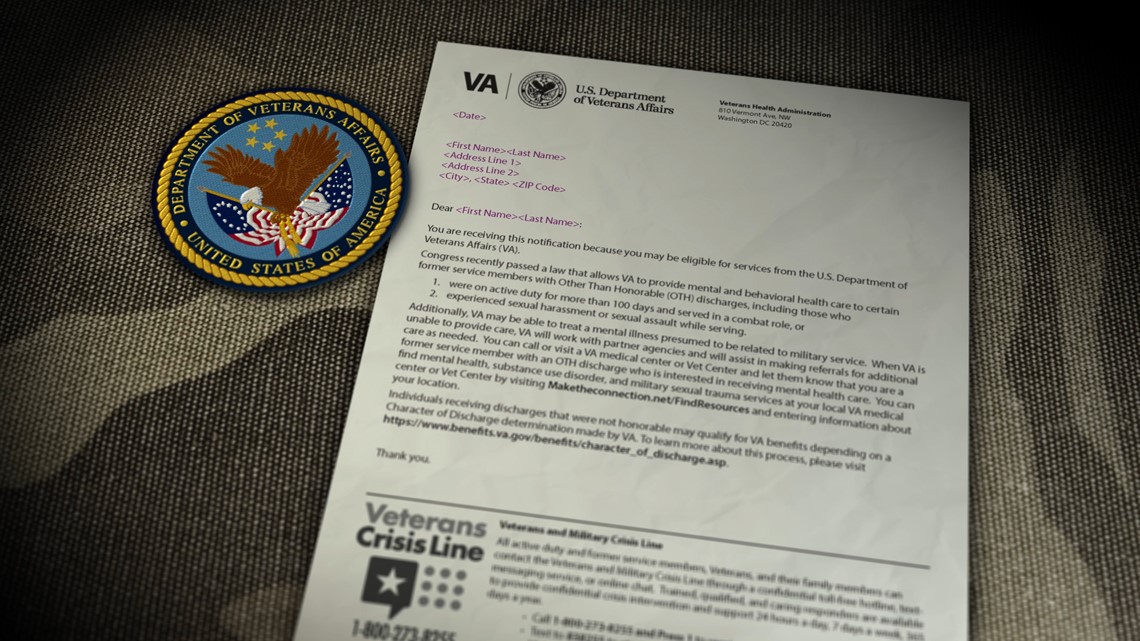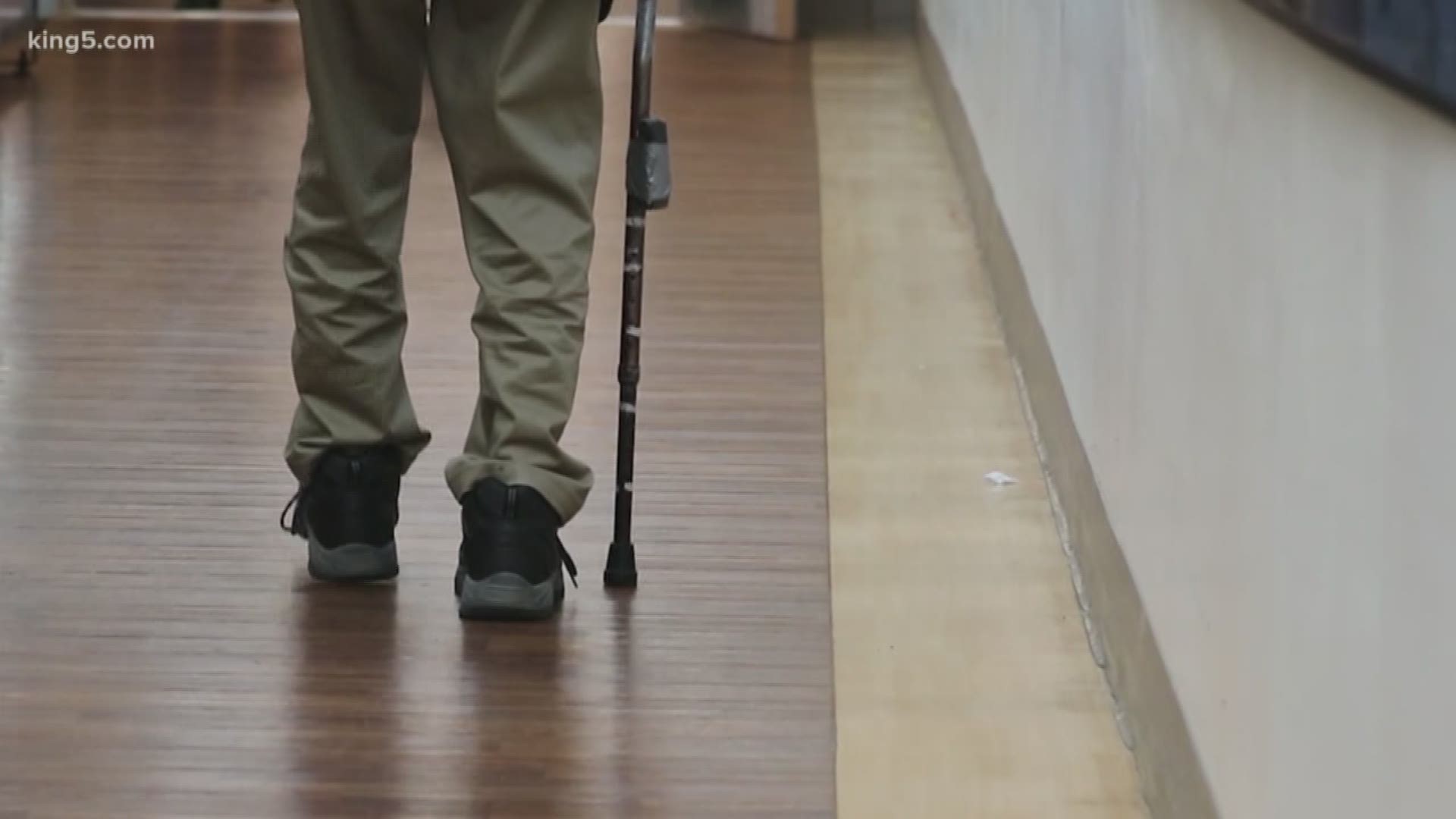WASHINGTON, USA — Five U.S. senators sent the Department of Veterans Affairs a letter Thursday demanding immediate corrective action in response to a KING 5 investigation that revealed the VA fumbled the roll out of a 2018 law, which expanded access to mental health care for a group of at-risk veterans.
"We are deeply frustrated that, as a result, thousands of veterans who are legally owed mental health care are unaware of their eligibility or have been denied care at VA facilities,” the senators wrote to VA Secretary Robert Wilkie in the letter signed by Sen. Patty Murray (D-Wash.), Sen. Maria Cantwell (D-Wash.), Sen. Chris Murphy (D-Conn.), Sen. Jon Tester (D-Montana), and Sen. Brian Schatz (D-Hawaii).
The March 2018 law requires the VA, for the first time, to provide ongoing mental and behavioral health care to hundreds of thousands of combat veterans and sexual assault victims who received other-than-honorable discharges — a group who faces an elevated risk of suicide. It expanded a 2017 VA program that offered short-term mental health care to those vets on an emergency basis.
KING reported last week that the VA missed Congress' deadline to notify eligible veterans of the change, and the agency failed to treat the majority of other-than-honorable veterans who qualified for help under the law.
The May 14 story also shed light on a need for more training among frontline VA staff. The story featured Bran McIan, a former Army special forces medic with an other-than-honorable discharge, who received incorrect information about the law when he visited American Lake VA Medical Center in April to seek treatment for PTSD.
Citing the media coverage and information provided directly to their offices, the senators point out that some veterans in Washington state and Connecticut aren't getting the care the new law affords them. VA employees informed the senators, according to the letter, that the agency's IT system still automatically categorizes other-than-honorable veterans as ineligible for care.
"The VA must immediately update its IT systems, retrain VA personnel on the eligibility changes under the Honor Our Commitment Act, and conduct routine inspections of VA intake personnel to ensure they are providing the correct information to (other-than-honorable) veterans,” the senators wrote.
They also ordered the VA to conduct a public outreach campaign to educate veterans, veterans service organizations and the broader public about the new law.
“We recognize that the VA finally complied with the law by mailing 477,404 letters to (other-than-honorable) veterans’ last known address in January, but the VA must do more than the bare minimum,” they wrote in the letter, adding that the agency has "failed to reach out to veterans adequately” despite receiving substantial budget increases.


In 2018, less than 1% of the estimated 500,000 veterans with an other-than-honorable discharge received mental health treatment at the VA, according to data provided by the department. In Washington state, 16 veterans with other-than-honorable discharges received VA mental health treatment last year.
While the letter puts the VA on notice to comply with the law, Congress has options if lawmakers are not satisfied with Secretary Wilkie's response. For example, they could withhold funding from the department or pass additional legislation to mandate further outreach to vets.
To date, national VA officials haven’t responded to multiple interview requests, and they haven’t answered specific questions about the issue, including whether the agency will make changes to reach more veterans who qualify for care.


